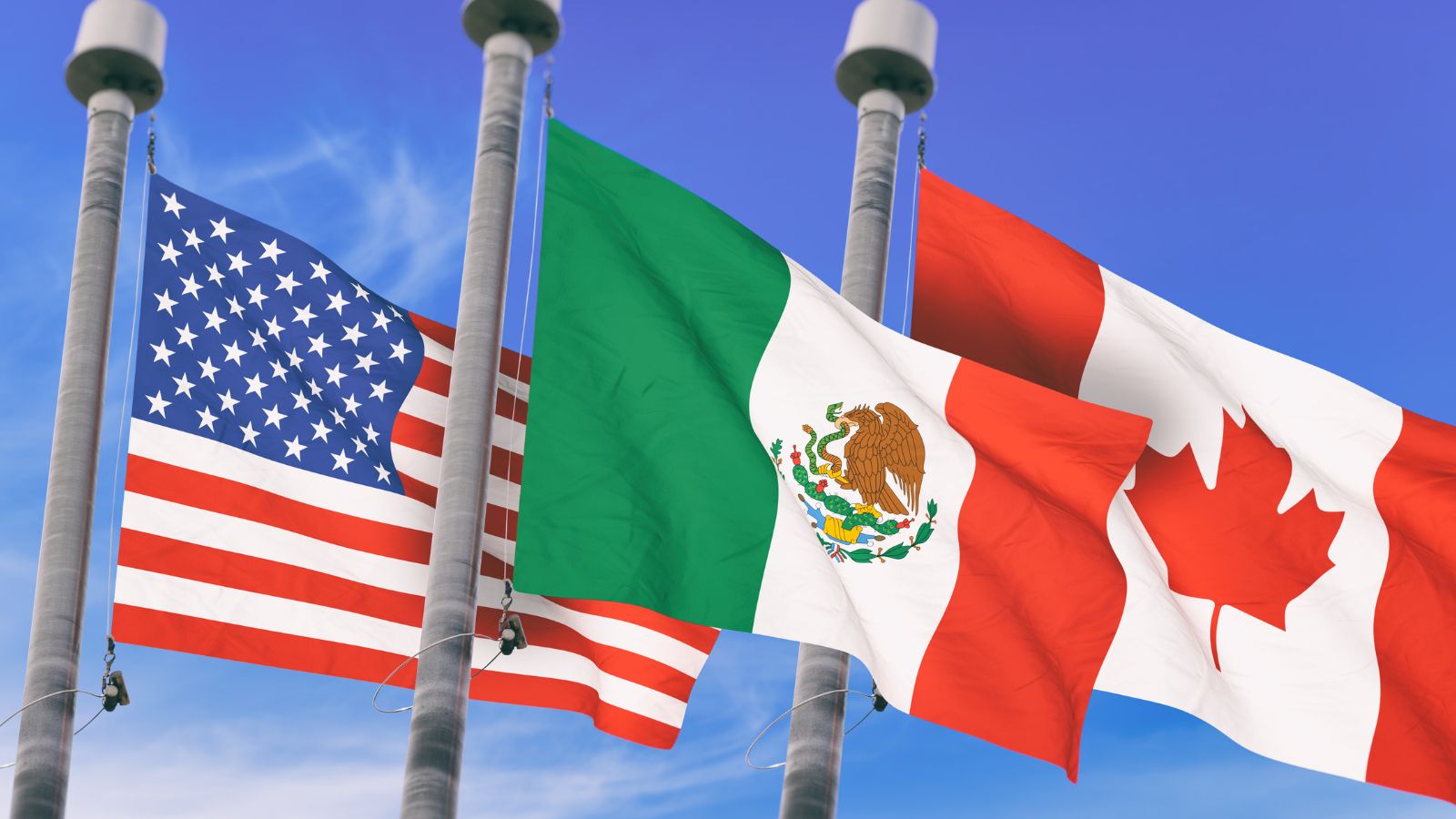Canada is often celebrated for its breathtaking landscapes, friendly people, and rich cultural heritage. Yet, beyond the picturesque scenery and welcoming communities lies a nation that has consistently demonstrated robust economic leadership on the global stage. Over the years, Canada has embraced free trade, navigated financial crises with prudence, and taken bold steps to diversify its economy.
In this article, we explore 27 key moments that showcase how Canada has repeatedly proven its mettle as a global economic leader.
Pioneering Free Trade Agreements

Canada’s economic story began with a visionary leap into free trade. In 1988, the country signed the Canada–U.S. Free Trade Agreement. This groundbreaking deal opened the doors to a new era of economic integration by reducing tariffs and setting the stage for cross-border commerce. It was a bold move that signaled Canada’s commitment to engaging with the global economy rather than remaining isolated.
NAFTA and North American Integration

Building on the momentum of its first free trade initiative, Canada joined its two North American neighbors in 1994 under the North American Free Trade Agreement (NAFTA). NAFTA created a vast free trade area that boosted trade volumes and enhanced economic interdependence between Canada, the United States, and Mexico.
Resilient Banking Through the 2008 Crisis

While the global financial crisis of 2008 devastated many economies, Canada’s banking sector stood as a beacon of resilience. Canadian banks, known for their conservative lending practices and strong capitalization, withstood the turmoil that shook their counterparts abroad.
Prudent Fiscal Management

Canada’s commitment to sound fiscal management is another pillar of its economic leadership. The country has created an environment that nurtures long-term growth with an emphasis on low public debt and balanced budgets. This fiscal prudence has enabled significant investments in infrastructure, education, and technology.
Leveraging Natural Resources

Canada’s abundant natural resources have long been the foundation of its economic strength. Canada is a leading exporter of oil, natural gas, minerals, and timber. The nation has harnessed its resource wealth to fuel domestic growth and establish a prominent position in global commodity markets. Canada has demonstrated how natural resources can be a driving force behind national prosperity by managing these assets sustainably.
An Agricultural Powerhouse

The vast, fertile lands of the Canadian Prairies have transformed the country into one of the world’s major agricultural exporters. Canada plays a critical role in ensuring global food security with its high-quality wheat, canola, and other grains reaching markets globally.
A Hub for Technological Innovation

Canada has emerged as a hotbed for high-tech companies and cutting-edge research, especially in areas like artificial intelligence and software development. Cities such as Toronto, Montreal, and Vancouver have become renowned for their vibrant tech ecosystems.
Transition to Renewable Energy

Canada’s commitment to renewable energy reflects its forward-thinking approach to economic development. The country is at the forefront of the global shift toward a low-carbon economy with major investments in wind, solar, and hydroelectric power. This leadership helps mitigate the effects of climate change and positions Canada as an attractive partner in international efforts to promote sustainable energy solutions.
Expanding Global Trade Networks

The nation’s proactive pursuit of multilateral trade agreements—such as the CETA with the European Union and the CPTPP has opened up new markets and reduced trade barriers. These deals have enabled Canadian businesses to access a vast network of customers and suppliers.
Strategic Infrastructure Investment

Canada has made significant strides in this area. Canada has improved its capacity to serve as a global trading hub by upgrading transportation networks, digital connectivity, and energy systems. Modern ports, railways, and highways facilitate domestic commerce and ensure that Canadian products can reach international markets efficiently.
Active Role in Global Institutions

Canada’s economic influence extends well beyond its borders through active participation in international organizations. As a member of the G7, G20, World Trade Organization, and other multilateral bodies, Canada plays a central role in shaping global economic policies and advocating for a rules-based international order. Its efforts in these arenas help promote stability, open markets, and solutions to global challenges.
High Environmental Standards

Canada is committed to balancing economic growth with environmental stewardship. Its progressive environmental policies serve as a model for sustainable development. Canada protects its natural heritage and inspires other nations to pursue green growth strategies by setting rigorous environmental standards.
Human Rights and Diversity

Canada’s liberal immigration policies and multicultural society have attracted talent from across the globe. This diversity drives innovation and enriches the cultural fabric of the country, ensuring that Canada remains competitive in the global economy while upholding core values of human rights and social justice.
World-Class Education and Skilled Workforce

Canada’s commitment to education has produced one of the most highly educated workforces in the world. Canada attracts international students and nurtures homegrown talent with world-class universities and research institutions.
Investment in Research and Development

Canada has made investing in research and development a top priority. With billions allocated each year to R&D, Canadian scientists and innovators have made significant contributions in fields ranging from medicine to advanced materials.
Crisis Leadership Under Mark Carney

During the global financial crisis, the leadership of Mark Carney, then Governor of the Bank of Canada, was instrumental in stabilizing the national economy. Carney’s bold monetary policies, including swift interest rate cuts and liquidity injections, helped shield Canada from the worst effects of the crisis. His actions preserved economic stability at home and earned international acclaim.
Critical Minerals and Rare Earth Elements

Canada has taken steps to reduce its reliance on foreign suppliers—particularly China, which currently dominates the processing of rare earth elements. Canada is working to build independent supply chains for these crucial materials by launching processing facilities in regions like Saskatchewan.
High-Value Manufacturing

Canada’s manufacturing sector, which spans from automotive and aerospace to high-tech electronics, is a significant contributor to the nation’s economy. Canadian manufacturers have continuously adapted to the challenges of globalization by focusing on advanced production techniques and precision engineering. This high-value manufacturing supports domestic growth and enables Canada to compete on the world stage in sectors that demand quality and innovation.
Service Sector

Today’s Canadian economy is largely driven by its service sector, which employs roughly three-quarters of the workforce. Industries such as finance, healthcare, education, and information technology play a critical role in the nation’s overall economic output.
Foreign Direct Investment

Canada’s stable political environment, sound fiscal policies, and high quality of life have made it an attractive destination for foreign direct investment (FDI). The continuous inflow of FDI has helped spur innovation, create jobs, and enhance Canada’s economic infrastructure. This trust from global investors is a clear indicator of Canada’s credibility and strength as an economic powerhouse.
Inclusive Economic Policies

Canada’s commitment to economic inclusivity ensures that the benefits of growth are shared widely. Canada maximizes its human capital by designing policies that help integrate immigrant talent and support underrepresented communities. These inclusive policies foster social cohesion and drive innovation by ensuring that a diverse range of perspectives contributes to economic decision-making.
Cultural and Creative Industries

The cultural sector is another area where Canada shines. Canada has established itself as a leader in creative exports with a thriving arts scene, a vibrant film and music industry, and a rich tradition of literature and design. These industries enhance the nation’s soft power and contribute significantly to the overall economy.
Rules-Based International Order

Throughout its history, Canada has been a steadfast defender of free trade and multilateralism. Canada continues to advocate for a rules-based international order at a time when protectionist sentiments are on the rise. Canada helps create a global environment where businesses can operate fairly and confidently by championing open markets and transparent trade practices.
Strategic Economic Reforms

Canada has continuously reformed its economic policies to stay competitive. Efforts to reduce internal trade barriers, streamline regulations, and simplify the tax code have played a significant role in keeping the economy agile and competitive.
Diversifying Energy Exports

Historically, Canada’s energy exports were largely directed to the United States. However, in response to shifting geopolitical dynamics and tariff threats, Canada has begun diversifying its energy export markets. Investments in LNG terminals and renewed discussions about new pipeline projects are designed to reduce dependency on a single market, thereby strengthening Canada’s position as an energy superpower.
Building Trade Resilience

Adapting to a Changing Global Landscape

Perhaps the most critical element of Canada’s economic leadership is its ability to adapt. Whether facing the challenges of a global financial crisis, responding to aggressive trade policies, or embracing emerging industries, Canada has repeatedly shown that it can pivot and innovate. This adaptability, combined with a commitment to multilateralism, sustainable development, and social inclusion, ensures that Canada remains a resilient and forward-thinking leader in the global economy.
Conclusion

In these 27 moments, we see a nation that has not been defined by a single policy or event but rather by a consistent track record of strategic decision-making and a forward-thinking vision for the future. Canada’s story is a testament to how a country can harness its natural resources, intellectual capital, and commitment to multilateralism to drive economic progress on a global scale.
25 Countries Predicted to Become Economic Superpowers in the Next 20 Years

The strength of an economy plays a crucial role in various international policies about trade and relations. Certain factors determine the strength of an economy, including population growth, availability of resources, and development and advancement. Here are 25 countries predicted to become economic superpowers in the next 20 years
25 Countries Predicted to Become Economic Superpowers in the Next 20 Years
